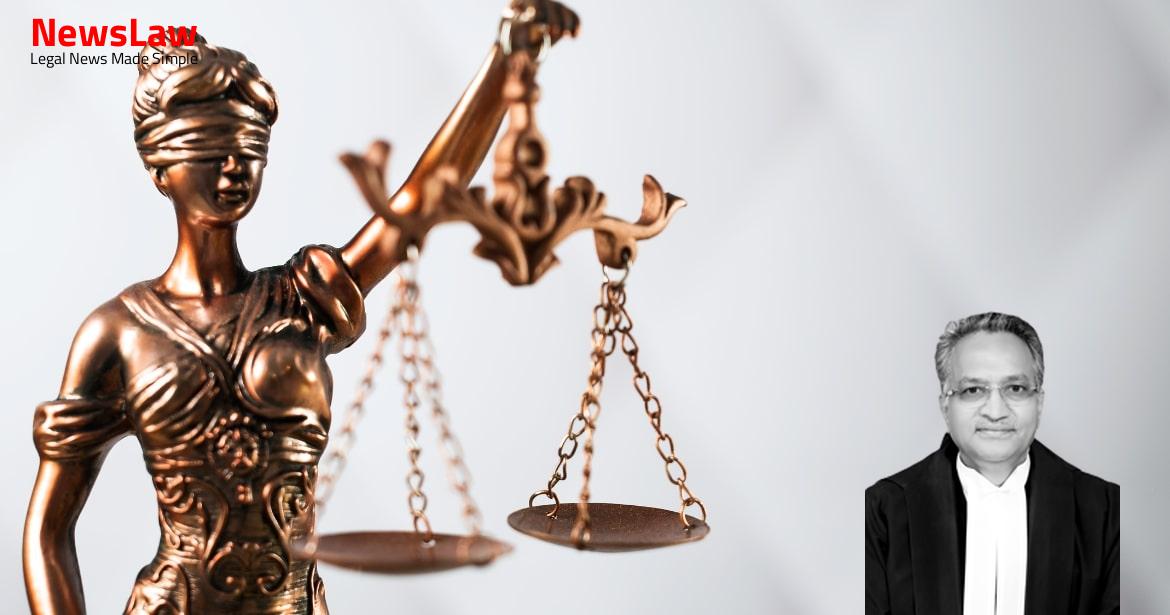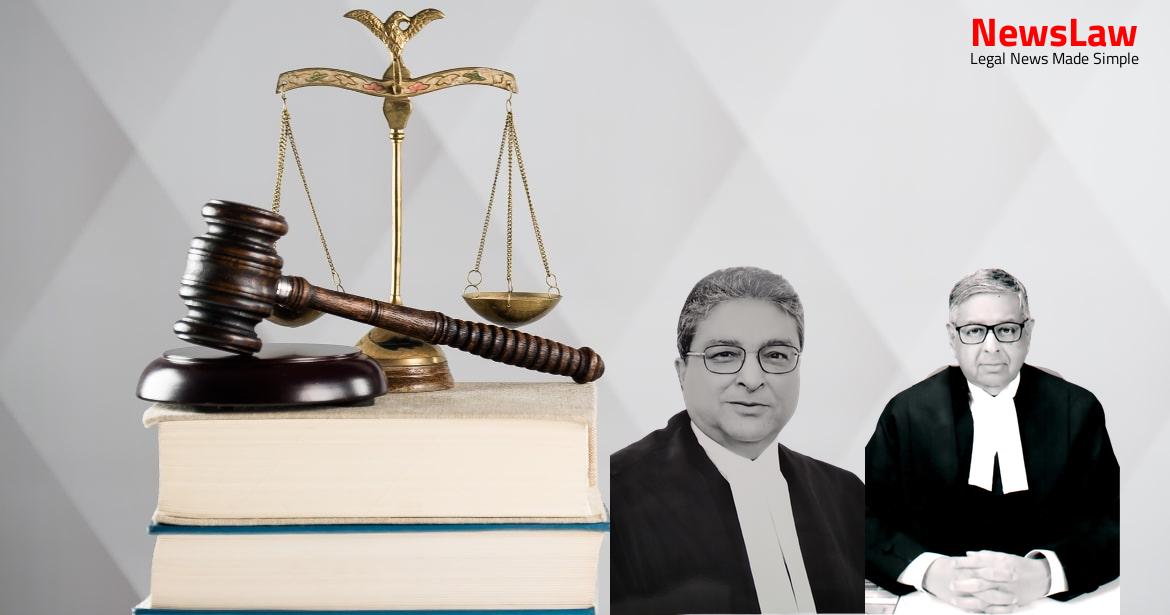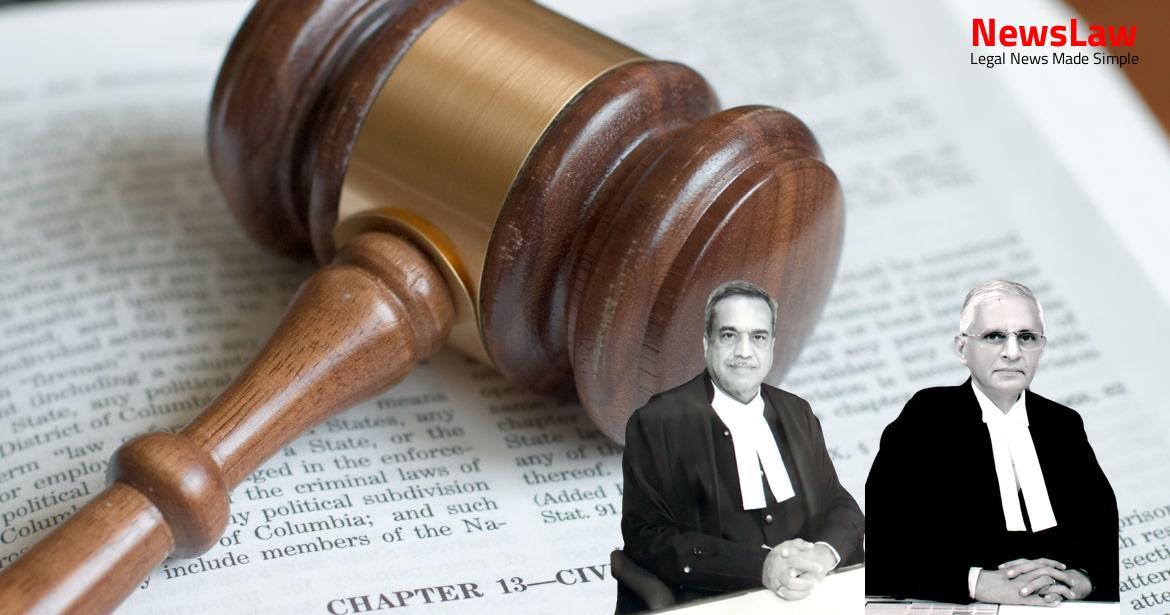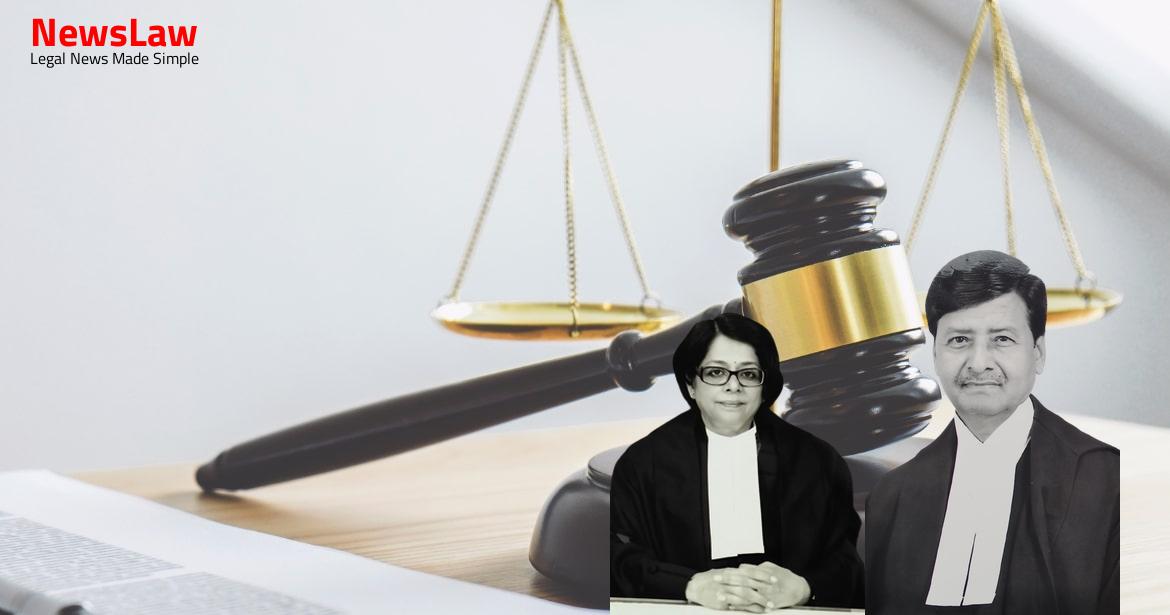In a significant legal battle, the Supreme Court has delivered its judgement on the water benefit tax dispute involving Municipal Corporation of Brihan Mumbai and Volga Frozen Foods. The dispute stemmed from a long-standing issue over property tax demands dating back to 1997. The implication of this ruling sets a precedent for future tax disputes in the region. Read on to understand the key aspects of this landmark case.
Facts
- Appellant started raising bills for water tax and water benefit tax in 1997 for the premises from 1 October, 1993.
- Respondent No.3 paid his share of the bill in protest, but Respondent No.1 refused on advice.
- Appellant issued a Warrant of Attachment in 1998 for the arrears of property tax and penalty.
- Aggregate demand against Respondent No.1 was Rs. 10,60,312.
- High Court quashed the bills/demands and Warrant of Attachment in 2006.
- High Court referred to a judgment in Municipal Corporation of Greater Bombay Vs. M/s. Nagpal Printing Mills and Another.
- Respondent No.2 is the landlord of Respondent No.1 for the premises.
- Respondent No.3 is the tenant of Respondent No.2 for the rest of the building.
- Premises located at Volga House, 1-C, K.K. Marg, Mahalaxmi, Bombay-400034.
- Appellant was a corporate body under the Mumbai Municipal Corporation Act, 1888.
- Respondent No.1 operated a business named Volga Frozen Foods and Ice Cream Company.
- Respondent No.1’s firm required 10 lakh gallons of water supplied by the appellant till October, 1983.
Also Read: Balancing Justice: Case Summary of C.P. No. 16/2017
Arguments
- The appellant argued that the demand raised by them was not invalid as it was retrospective in nature.
- They referenced a previous decision to support their argument.
- The High Court’s reliance on Nagpal Printing Mills case was criticized as it dealt with a different provision of the Water Charges Rules.
- By cutting off water connection but keeping communication pipes connected, the respondents became liable to pay property tax in the form of water benefit tax under Section 141 of the Act.
- The appellant emphasized the distinction between water charges under Section 169 and property tax under Section 141 of the Act.
- A recent decision of the Bombay High Court in Sumer Builders case was cited to support this distinction.
- Mr. Atul Y. Chitale represented the appellant and Mr. Anirudh Joshi represented the contesting respondent.
- The main issue revolved around whether the impugned notices were towards water charges or in the form of water benefit tax.
- Reference was made to the cases of Kalyan Municipal Council and Municipal Corporation of City of Hubli to understand the question of levy of property tax after alterations in the assessment list.
- The respondents requested the court to grant them reasonable time to pay the dues in installments if the decision was not in their favor.
Also Read: Judgment by Supreme Court of India in M/s. Bhilwara Processors Ltd. vs. Department of Central Excise
Analysis
- The High Court misapplied the decision in Nagpal Printing Mills by assuming the case was a levy of ‘water charges’ under Section 169 of the Act.
- The demand raised was actually for property tax in the form of water benefit tax under Sections 139, 140, and 141 of the Act.
- The liability to pay such tax arises irrespective of water supply disconnection.
- If the premises utilize water supply, they are liable to pay water charges commensurate with the quantity consumed.
- The impugned demand notices are not barred by limitation and are valid for the period mentioned.
- Water/sewerage taxes are distinct from water/sewerage charges, each governed by specific provisions.
- The liability for property tax in the form of water benefit tax is co-extensive and must be paid for the property’s rateable value.
- The claim for water/sewerage charges can only be made after they become due and payable.
- Retrospective levy of tax is not applicable in the case, as the demand notices were issued for the specific time period.
- The demand notices are for property tax in the form of water benefit tax and sewerage benefit tax, as per Section 141 of the Act.
- The water tax and water benefit tax are levied on specified premises in Brihan Mumbai where private water supply is furnished or connected to municipal water works.
- The water benefit tax is determined based on a prescribed percentage of the rateable value of the premises or its capital value.
- Section 169 of the Act enables the Standing Committee to make rules for water taxes and charges.
- Property taxes leviable in Brihan Mumbai include water tax, water benefit tax, sewerage tax, sewerage benefit tax, and general tax.
- The Corporation cannot levy property tax on residential buildings or tenements with a carpet area of 46.45 sq. meter (500 sq. feet) or less.
- The respondents argued that the demand for the period preceding 10 January, 1994, from 1 October, 1993 to 9 January, 1994, is barred by limitation.
- They also contended that the demand notices impose taxes retrospectively.
- The High Court rejected these arguments citing the decision in State Bank of India vs. Brihanmumbai Municipal Corporation of Greater Bombay and Others.
- In a similar situation, the Court had noted that the retrospective levy of taxes was justified.
- Respondent’s liability to pay statutory interest relieved for the period spent in pursuing proceedings in good faith before the High Court and the Supreme Court.
- Time spent not attributed to inaction or neglect of respondents.
- Interim orders favored the respondents during the pendency of the writ petition before the High Court.
- Impugned demand notices were set aside by the High Court.
- Interest component quantified at 18% per annum on the outstanding tax amount for the period during the pendency of the writ petition and the present appeal.
- For the rest of the default period, interest shall be payable at the rate prescribed in the extant Regulations.
- Interest at the statutory rate commences from the date of issuance of demand notices on 10 January 1997.
- Equitable arrangement for the respondents as the demand notices will be revived.
- Principle underlying decisions in State of Rajasthan Vs. J.K. Synthetics Limited and Kanoria Chemicals Vs. U.P. State Electricity Board applied.
Also Read: Landmark Judgment: Consolidation of FIRs and Bail Granted in ‘Grand Venice’ Project Case
Decision
- Interest payable by the respondents for delayed payment as per governing Regulations, except during specific periods.
- Impugned judgment of the High Court is set aside.
- No order as to costs was given.
- Interest is to be reckoned from specific dates, including the date of filing the writ petition and the pendency of the special leave petition.
- Respondents must pay outstanding amounts and interest within three months; failure to do so allows the appellant-corporation to proceed against them according to the law.
- The effectiveness of Water Charges Rules under Section 169 of the Act was not discussed or considered as unnecessary in this case.
Case Title: MUNICIPAL CORPN.OF GREATER MUMBAI Vs. HARISH LAMBA OF BOMBAY, INDIAN INHABITANT
Case Number: C.A. No.-000142-000142 / 2009



